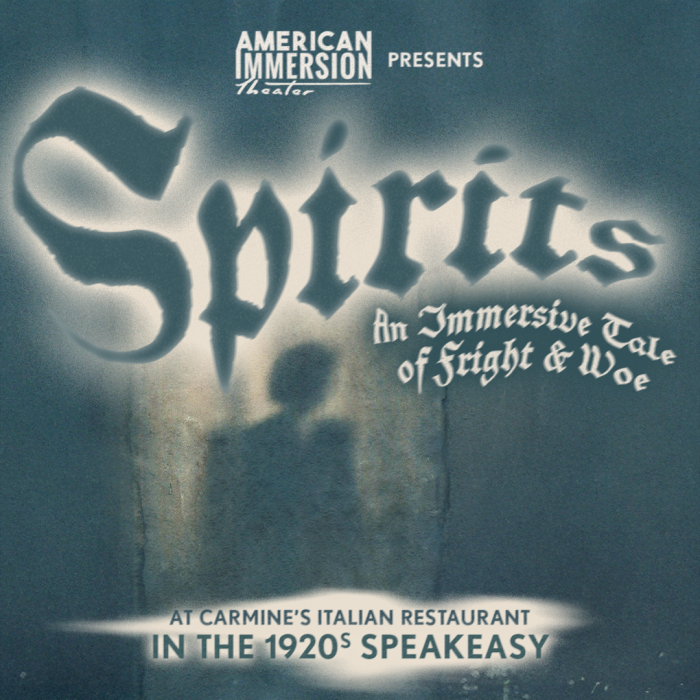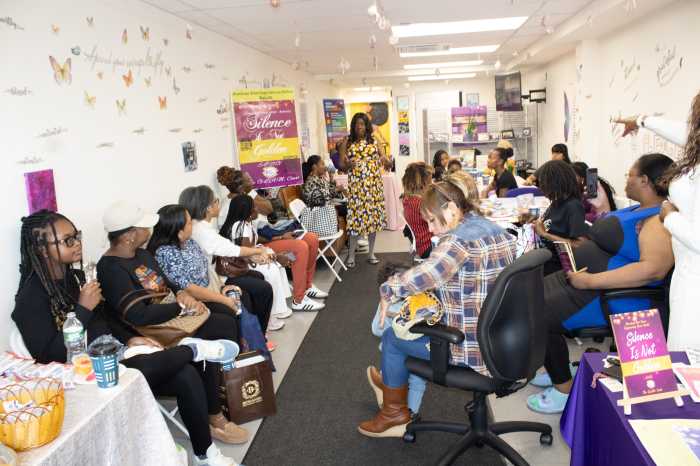When I hear a restaurant called “hot,” I usually want to turn and walk the other way. There are many terrible things about our happy-shiny new food culture, but the worst may be its lust for trendiness. So when I saw that the new Austrian restaurant near where I live in not-very-gentrified Kensington had made Eater’s list of “the hottest restaurants in Brooklyn,” I grimaced. For one thing, it was going to drive the price of housing up.
But I’m human. So it also made me think of visiting and trying Werkstatt’s celery schnitzel.
Some of you will remember the last restaurant from this chef, Austrian-born Thomas Ferlesch. Called Thomas Beisl (that’s German for “tavern,” more or less), it was right across the street from BAM and, at least for the two scant meals I ate there, excellent.
Must pre-chic Brooklyn neighb boast a “hot” restaurant?
The restaurant near BAM was white-tablecloth fancy. Werkstatt actually looks much more like the kind of working-class pub that is supposed to be conveyed by “beisl,” with a dark, drab front room full of weathered wooden tables that reminds me of the two best-loved bars near my undergraduate campus. The back room is much more chic-ified Brooklyn, with a wood-burning stove and a beautiful, hip light fixture made of amber-colored bottles suspended below a skylight. There is also an unfortunate motorcycle hanging on the wall, part of a macho overlay with a Shell oil sign and a few long picnic tables where working men can presumably besport themselves. (There are twisted wire chairs and tables for those who need a modicum of back support.)
If you’re lucky, you’ll get one of the city’s most delightful waiters, who was here every evening we tried the place (and not macho in the slightest). A short, middle-aged Brit with wonderfully nerdy, no-color glasses, he cosseted Karen and me so that every moment under his care was deliciousness, even if some of the food was not. A salad of endive, Gorgonzola, pear, and grapes ($9, a frequent special) was merely pleasant, but as we ate it the Brit elf charmed us with descriptions of the wines I was interested in, wry advice about pairings, and at my request, on-the-spot translations of the metal German signage on the walls (“In this tram, smoking or carrying a light or fire is forbidden by the police”).
A Köstriker black beer from Germany (on draft, $7) had little taste but looked dramatic, served in a fetish-y thin and enormously tall glass that looked a little like a stylized boot. (I can’t entirely blame the Brit. I’d first proposed the Köstriker myself for its cool black color.) Karen, however, got Strongbow hard cider from England (also on tap, $7), with a fresh flavor that nicely mixed tart and sweet, like Macintosh apples.
An entrée of chicken livers with Riesling-sautéed apples and mashed potatoes ($16) puzzled my liver-loving soul. I misread the Riesling as applying to the chicken livers and expected some appealing sweetness in their sauce, but there was none. Nor did the meat have that nice liver umami that would have gone nicely with the apples and wine. Instead, it tasted mild and like not much of anything, although it did have a faintly unpleasant organ-y texture, so that you felt the edge of every lobe, not the silkiness I had hoped for. At least the apples and the mashed potatoes were good.
Karen adored the monstrous housemade bratwurst that came with the most delicious sauerkraut I’ve ever had, tasting a little sweet from (again) a few apples mixed in with the vinegared, fermented cabbage ($16). The bratwurst itself was glorious and meaty, made from pork belly and shoulder, though on a second visit it tasted a little muted. Rösti, the Swiss-German fried grated potatoes, also came on the plate and were tasty if underseasoned.
Desserts ($7) continued the pattern of hit-and-miss. Mine, palatschinken, a delightfully thin crêpe with a texture like noodles, had a plentiful but inedibly oversweet filling of apricot jam. I had to work around that and just eat the noodley part, because I was still hungry. But Karen’s was the best Linzer torte I ever ate, with a rich, deep crust of hazelnut and almond providing a terrific grounding for the raspberry.
Dinner number two: it’s a Saturday night and the frazzled hostess, Robin Wertheimer, who co-owns Werkstatt along with her husband, chef Ferlesch, takes her frazzlement out on us. “Can’t you just wait a moment?” she screeches, though we haven’t asked her for anything. We’ve just been waiting quietly. “Um… Sure. No problem.” It casts a bit of a pall on the meal. And instead of the motherly Brit, we get a smiley ditz who has no interest in telling us the specials (“Oh, they’re on the board over there”), freshening our drinks, or aiding us in securing anything else on the menu.
Surprise: that’s the night we get the best dish of all, käse spätzle (German housemade, tiny egg noodles with cheese, $14). It’s like mac and cheese made by tough-minded angels, and comes with caramelized onions and, if you wish, bacon. It also comes with a trio of lovely and lively salads: potato salad, cucumber salad, and an interesting salad made of tomatoes. (The salads are also available as a large plate of their own, along with superb housemade dill pickles, $9).
Third visit: we decide to sit at the bar, where the stools have backs and are surprisingly comfortable, and where, from 5 to 7 p.m. during the week, all drinks on tap are $5. The bartender is an attractive man with great tattoos, but he isn’t terribly attentive. Even though there are hardly any other customers at the bar. He looks off in the distance at some private dream of his own, but happily before he does so, he takes our orders: I get the Werkstatt Burger with blue cheese and bacon-onion marmalade ($15, plus $1.50 each for toppings). What can I say? It’s a burger with blue cheese and something made from bacon and onions: heavenly. The umami quality of my dreams. But it seems a little chintzy to charge $18 for it just because it has some cheese and a housemade condiment.
It may not be intentional, but I found Werkstatt’s description of the burger’s sourcing a bit misleading: the chopped meat is described on the menu as “Sterling Silver beef,” which I guessed, before I did any research, was the name of some local farm, the way a menu’s chicken might be described as Goffle Road or Bobo. But it turns out that Sterling Silver merely designates a line of feedlot beef and pork from Cargill, the giant agribusiness concern that is arguably the largest meatpacking company in the US, as well as a major player in feed, fuel, and fertilizer. The Sterling Silver line is supposed to be “premium,” yes, but that only applies to its level of marbling, i.e. the number of months the animal has spent putting on fat from environmentally detrimental corn-feeding in overcrowded feedlots. Sterling Silver meat is not hormone- or antibiotic-free, and the designation does not guarantee that the animal had an all-vegetarian diet, either. Cargill boasts on the Sterling Silver website that all of its slaughterhouses are designed by humane-slaughter engineer Temple Grandin, but then again, half of all US slaughterhouses are.
Good thing it tasted so good. Werkstatt sources all its beef and almost all its pork from Sterling Silver, but the chicken is hormone- and antibiotic-free. I almost never order cocktails, because even one can make me fall in the street, but along with my delicious feedlot burg I spring for Werkstatt’s signature cocktail, an homage to the pink grapefruit, a fruit that I love. It’s made from Giffard pamplemousse (a pink grapefruit liqueur from France), Schöfferhoffer grapefruit beer, and sparkling wine ($11), and is fantastically celebratory, ass-kicking, delicious. Karen orders an odd special that combines calamari, kielbasa, and garlic aioli ($12); she finds it thrilling, but to me it is a little muddy in texture and taste. But with it she gets a glass of Baumgartner zweigelt, a marvelous, rough, and raspy red wine from Austria, one of several interesting wines on tap.
It’s our best evening here. We’re having a wonderful time; we sit very close to each other at the bar. The place is definitely gay-friendly enough. I forgot to mention that the music here is great, with lots of Johnny Cash and old blues. The two straight men at the bar share the most gigantic, baked pretzel I’ve ever seen ($9, served with a crock of Liptauer cheese). Wertheimer, the hostess, says goodbye to us tenderly at the door.
We will come back: it’s a lot of fun, and we live only a short walk away. But one of the hottest restaurants in the borough?
Werkstatt (“workshop” in German), open Monday-Friday, 5-p.m. and 11 a.m.-11 p.m., Saturday and Sunday, is at 509 Coney Island Avenue near Turner Place, a short block from Church Avenue (werkstattbrooklyn.com; 718-284-5800). Cash and American Express only; there is an ATM on premises. The front room is wheelchair accessible, and there is one accessible restroom.














